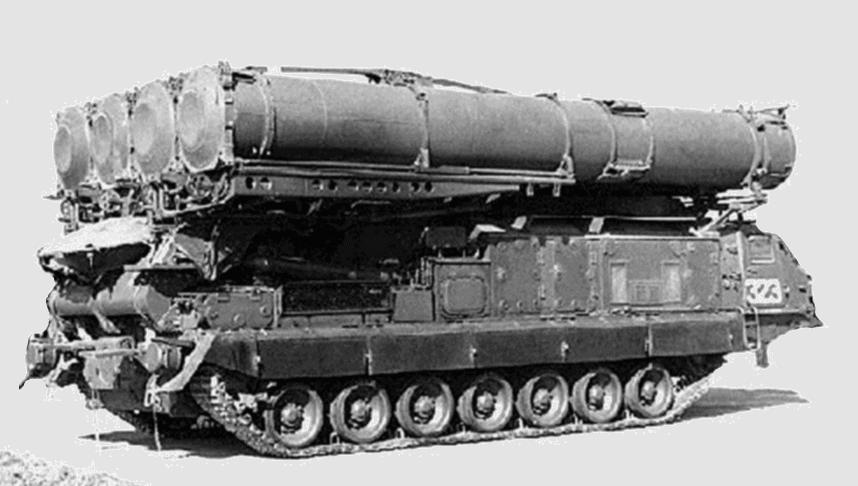Russia has developed a new reloading and missile-transportation vehicle for its S-300 air/missile defense systems, reports the September 1 issue of Jane’s Missiles and Rockets. The NPP Start scientific production enterprise released details of the new 22T6E2 vehicle at the recent Russian Expo Arms 2006 exhibition in Nizhniy Tagil. The 22T6E2 is based on Russian wheeled vehicles rather than the Ukrainian-manufactured KrAZ-260 wheeled chassis currently in use. The new vehicle, 10.8 m long, 3.2 m wide and 3.8 m high, can simultaneously load or unload two S-300 missiles and can relocate four missiles in approximately 30 minutes. 
 Jane’s reports that Russia plans to export the new S-300 vehicles immediately. In 2005, the designers completed all testing of the 22T6E2 and received a certificate for mass production. According to Gennadiy Mikhaylovics Muratshin, the general director of NPP Start, the factory already has production orders from four unspecified countries.
Jane’s reports that Russia plans to export the new S-300 vehicles immediately. In 2005, the designers completed all testing of the 22T6E2 and received a certificate for mass production. According to Gennadiy Mikhaylovics Muratshin, the general director of NPP Start, the factory already has production orders from four unspecified countries.
Russia: Moscow Confirms Missile-Systems Deal With Iran
By Jean-Christophe Peuch
Russia yesterday confirmed that it has signed a deal to sell Iran air-defense missile systems. Officials in Moscow say the systems are meant exclusively for defense purposes and that they are not negotiating any further weapons deals with Iran.
PRAGUE, 10 February 2006 (RFE/RL) -- The deal was officially announced by Mikhail Dmitriyev, the head of Russia's Federal Service for Military and Technical Cooperation.
"We've signed a contract for supplying [Iran] with air-defense missile systems for defense purposes," Dmitriyev said. "No other deals are being negotiated. Russia has an obligation to fulfill this contract."
Dmitriyev did not divulge the terms of the deal. Nor did he say when the contract was signed.
Russian media believe the deal was inked in late December 2005 for a total amount of $700 million. The agreement reportedly covers the sale to Tehran of 29 Tor-M1 and two smaller Pechora-2A systems.
The Israeli-based "Defense Update" online magazine describes the Russian-made Tor-M1 as a mobile ground-to-air missile system designed for operation at medium, low, and very low altitudes. It reportedly can engage two targets simultaneously at a maximum range of 12 kilometers.
Wary West
There have been concerns in the West that Russia may seek to sell Iran another, more powerful missile system known as the S-300. Defense experts believe the S-300, which has a much longer range than the Tor-M1, could dramatically boost Iran's defense capabilities.
The Moscow-based daily "Kommersant" last month quoted an unnamed Russian defense-industry official as saying Tehran needed the Tor-M1 batteries only to protect the S-300 systems it was considering purchasing in the near future.
According to a 7 December 2005 "Defense Update" commentary, "when deployed in an integrated network, an array of S-300 and Tor M-1 systems could pose a highly potent defensive network against any aggressor."
Reports that Iran two years ago acquired two S-300 batteries that have been deployed near Tehran remain unconfirmed to this date.
"Kommersant" last month reported that Russian defense officials were in the Iranian capital to negotiate the sale, tentatively scheduled for March, of S-300 systems for a total sum of more than $800 million. However, the Russian daily claimed that the delegation had cut short its visit amid a growing international controversy surrounding Iran's nuclear program.
Balancing Act
The alleged cancellation of the talks coincided with reports that Russia was edging closer to the position of the United States and the European Union, which have been demanding that Tehran suspend nuclear-enrichment activities they fear could be used for military purposes.
Political commentators have been speculating on how much room to maneuver Moscow has, caught as it is between its cooperation with Iran and its desire not to openly antagonize the West.
In addition to supplying Tehran with weapons and antimissile systems, Russia has invested up to $750 million in various Iranian energy projects. It is also helping Iran complete a nuclear power plant in Bushehr under a $1 billion project that both Israel and Washington see as a potential threat to regional security.
Some Russian Middle East experts have said they believe Moscow may use the sale of antimissile systems to Iran in order to persuade Tehran to abandon its most controversial nuclear plans. Yet, Tehran's insistence on pursuing its nuclear-enrichment activities would indicate that this purported plan -- if it ever existed -- has failed.
Meanwhile, Federal Service for Military and Technical Cooperation head Dmitriyev on 9 February said Russia had completed yet another controversial deal.
He said his organization had delivered Strelets antiaircraft missile systems to Syria under a three-year military cooperation agreement that has caused widespread concern in the West.
Russia says the Strelets, which has a maximum effective range of five kilometers, is unable to affect the balance of forces in the Middle East and poses no threat to Israel.
But Israeli government officials have said they are concerned the new weapon could fall into the hands of radical Palestinian groups, such as Hamas or Islamic Jihad, which have suspected ties with Syria.
Copyright (c) 2006. RFE/RL, Inc. Reprinted with the permission of Radio Free Europe/Radio Liberty, 1201 Connecticut Ave., N.W. Washington DC 20036. www.rferl.org

 Jane’s reports that Russia plans to export the new S-300 vehicles immediately. In 2005, the designers completed all testing of the 22T6E2 and received a certificate for mass production. According to Gennadiy Mikhaylovics Muratshin, the general director of NPP Start, the factory already has production orders from four unspecified countries.
Jane’s reports that Russia plans to export the new S-300 vehicles immediately. In 2005, the designers completed all testing of the 22T6E2 and received a certificate for mass production. According to Gennadiy Mikhaylovics Muratshin, the general director of NPP Start, the factory already has production orders from four unspecified countries.